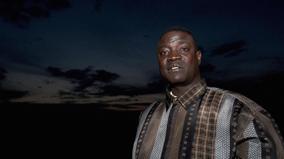19 Days
This short documentary follows several refugee families during their first 19 days in Canada, as they navigate an unfamiliar terrain that has suddenly become their home. Located in the quiet Calgary neighbourhood of Bridgeland, the Margaret Chisholm Resettlement Centre is the starting point for government-assisted refugees who arrive in the city. During the 19-day timeline established by the federal government, an initial assessment is done and refugees are assisted with everything from airport reception and orientation to referrals, documents, and counselling. 19 Days reveals the human side of the refugee resettlement process. A unique look at the global migration crisis …

Extras
Details
This short documentary follows several refugee families during their first 19 days in Canada, as they navigate an unfamiliar terrain that has suddenly become their home. Located in the quiet Calgary neighbourhood of Bridgeland, the Margaret Chisholm Resettlement Centre is the starting point for government-assisted refugees who arrive in the city. During the 19-day timeline established by the federal government, an initial assessment is done and refugees are assisted with everything from airport reception and orientation to referrals, documents, and counselling.
19 Days reveals the human side of the refugee resettlement process. A unique look at the global migration crisis and one particular stage of asylum, it lays plain the realities faced on the difficult road towards integration.
-
writerAsha SiadRoda Siad
-
directorAsha SiadRoda Siad
-
producerDavid Christensen
-
director of photographyPatrick McLaughlin
-
sound recordistGary BrucknerAdam Naugler
-
editorPaul Mortimer
-
sound effects editorAdam Naugler
-
mixing supervisorAdam Naugler
-
gradingDarren Bierman
-
post-production servicesDarren Bierman
-
transcriptionAlbert KazoheraLazhar Abida
-
production coordinatorJasmine PullukattFaye Yoneda
-
production supervisorMark Power
-
marketing managerLeslie Stafford
-
program administratorBree Beach
-
centre operations managerDarin Clausen
-
executive producerDavid Christensen



















